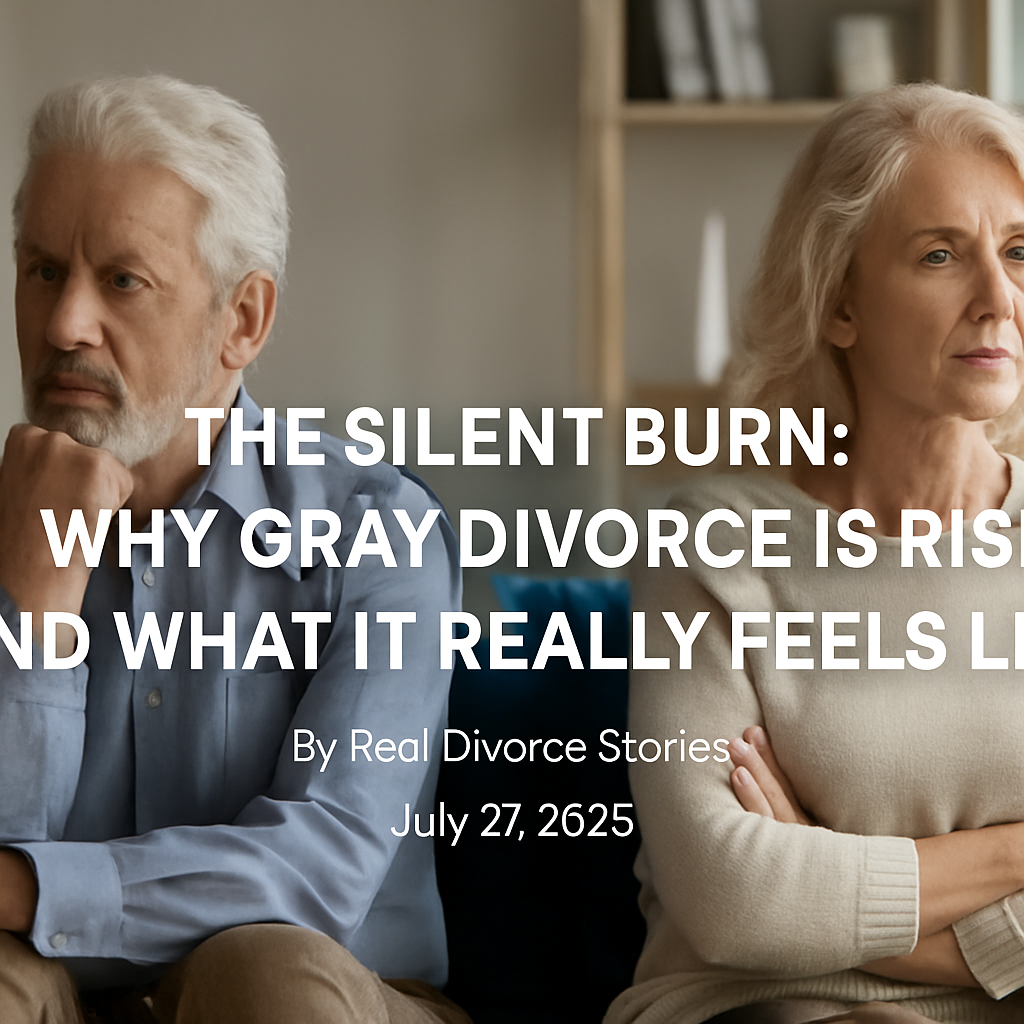
The Quiet Cracks That Grow Over Time
Divorce is always painful. But for those in their 50s, 60s, and even 70s, it often carries a different, more complicated weight. Gray divorce—the rising trend of marital breakups later in life—is steadily increasing, even as overall divorce rates have declined. What’s behind this phenomenon, and more importantly, what does it feel like to start over after decades with someone?
The answer isn’t simple. It’s layered with years of silent compromise, unmet expectations, and the emotional toll of growing apart while growing older. These aren’t spur-of-the-moment decisions; they’re years in the making. And when they finally arrive, they can feel like a small emotional explosion that shakes everything you thought you knew about your life.
Why More Older Adults Are Saying Goodbye
In the last 30 years, the divorce rate for people over 50 has doubled. For those over 65, it’s even higher. Researchers cite several causes:
- Longevity: People are living longer, and many no longer want to spend another 20-30 years in an unhappy marriage.
- Empty nest syndrome: Once the children leave home, couples may realize they’ve drifted apart or have little in common.
- Financial independence: Especially among women, increased earning power and retirement savings allow for greater autonomy.
- Changing attitudes: Divorce no longer carries the same stigma it once did, particularly for Baby Boomers who grew up challenging social norms.
But statistics don’t tell the full story. Behind every gray divorce is a personal reckoning—a moment when someone decides that comfort isn’t enough, and that peace is worth the upheaval.
What It Really Feels Like
Gray divorce is often less about explosive conflict and more about slow erosion. The small things—dinners eaten in silence, hobbies done alone, conversations filled with logistics instead of laughter—start to weigh heavier over time. Many people describe a sense of invisible grief, like mourning a person who is still alive.
There’s also the deep fear of starting over. After sharing finances, social circles, even retirement plans for decades, life alone can feel unthinkable. Some report feeling a surprising sense of guilt—toward their adult children, their spouse, or even themselves for not “making it work.”
And yet, many also speak of unexpected lightness. Of rediscovering who they are outside of a long relationship. Of relearning joy in the little things—coffee alone in peace, travel without compromise, or reconnecting with old dreams.
Financial and Emotional Hurdles
Despite the emotional relief that gray divorce can bring, it often comes with serious logistical challenges. Retirement accounts must be divided. Health insurance becomes a concern. And many find themselves reentering the workforce or downsizing drastically.
Emotionally, the loss of shared history can be haunting. Friends may take sides, holidays become awkward, and adult children might struggle to accept the change. It’s not uncommon to feel isolated—even when the marriage itself was lonely.
How to Navigate Gray Divorce with Strength
Surviving and thriving after gray divorce is possible. Here are some guiding principles from those who’ve done it:
- Allow yourself to grieve: Even if you wanted the divorce, loss is still loss. Give yourself permission to mourn.
- Build a support network: Friends, therapy, support groups—don’t try to go it alone.
- Reframe your identity: Who are you now, outside the context of your former marriage? Explore new interests or reignite old ones.
- Get good legal and financial advice: A trusted professional can help you protect your future.
- Be patient: Healing and rebuilding take time, especially when untangling decades of shared life.
You’re Not Alone
The most important thing to remember is that gray divorce is not a failure. It’s a decision—sometimes the bravest one—to pursue happiness and authenticity in the years that remain. And thousands of people are walking this path alongside you, even if it doesn’t always feel like it.
There is life after a long marriage. A rich one, full of purpose, discovery, and even love again. The hardest part is trusting that you still deserve all of that—and more.
